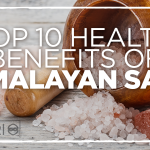Are You Eating Roundup Ready Ice Cream?
Much like many food products these days, Monsanto’s ubiquitous herbicide, Roundup, has been found in yet another product. This time the labs found it’s main ingredient, glyphosate, in 9 out of 10 flavors of “Vermont’s finest”, Ben & Jerry’s Ice Cream. Ben & Jerry’s products in the E.U. also tested positive for glyphosate residues. Roundup is being found in literally everything from rainwater, to Oreos, to breast milk, to cord blood. How did this happen? A new study published in October 2017 showed that human exposure to glyphosate has increased approximately 500 percent since the introduction of GMO crops. The saturation of our environment in Roundup has spiked since the introduction of Roundup Ready GMO crops. Roundup Ready seeds are genetically modified to be resistant to the herbicide Roundup. But, it’s also conventional crops that are not genetically modified such as wheat, barley, oats, sunflowers, potatoes, and lentils produced using Roundup. Roundup is also widely used by consumers and communities on their lawns, home gardens, golf courses, parks, and schools.
Some disturbing connections are made when investigating the extreme usage of Roundup in juxtapose to our rising health and environmental issues. Roundup is extremely dangerous due to its main ingredient, glyphosate.
Glyphosate Is A Mineral Chelator
Glyphosate was first patented as a mineral chelator in 1964 by Stauffer Chemical Co. Later, in 1974, Monsanto introduced this chelator as an herbicide. According to Dr. Huber, an award-winning scientist and professor emeritus of plant pathology at Purdue University, “It’s important to realize that glyphosate is not ‘just’ an herbicide but also an antibiotic. As a mineral chelator, this poses a health risk for those that ingest glyphosate because it immobilizes nutrients, so they’re not physiologically available for your body. As a chelator in the soil glyphosate binds itself to vital nutrients such as iron, manganese, zinc, and boron, preventing plants from taking them up. As a chelator that is ingested, it poses potential health implications for humans and animals that eat GMOs, glyphosate-tolerant crops, or glyphosate-dried crops as it could affect nutrient value.
Glyphosate Is A Probable Carcinogen
Glyphosate was deemed by the World Health Organization to be a probable carcinogen. So the fact that we are finding this persistent chemical in food, water, air, and our bodies is quite disturbing and it’s likely we won’t know the sum of glyphosate’s impact for several years. Just this year California began to add warning labels to Roundup and has listed glyphosate as a carcinogen.
Some Additional Facts About Glyphosate:
According to a February 2016 study in Environmental Sciences Europe, glyphosate is the most widely used pesticide. “In the U.S., no pesticide has come remotely close to such intensive and widespread use,” according to the study.
Findings include:
- Americans have applied 1.8 million tons of glyphosate since its introduction in 1974.
- Worldwide 9.4 million tons of the chemical has been sprayed on fields – enough to spray nearly half a pound of Roundup on every cultivated acre of land in the world.
- Globally, glyphosate use has risen almost 15-fold since so-called “Roundup Ready,” genetically engineered glyphosate-tolerant crops were introduced in 1996.
- As Roundup producer Monsanto itself has reported, the residue from glyphosate tends to accumulate in the bones, marrow, and collagen-rich ligaments of animals. Anthony Samsel confirmed this finding in his own study of the bones, marrow, and other parts of pigs and cows, as well as the derived bovine gelatin.
Health Conditions Linked to Glyphosate Include:
- ADHD: A 2015 study from an Ohio-based research team found an increase in the use of GBHs coincides with a surge in healthcare costs related to attention deficit hyperactivity disorder (ADHD).
- Brain and Gut Disorders: Manganese binds to glyphosate thus stripping the body of this important nutrient. Certain strains of essential gut bacteria need manganese to thrive. Damaged gut bacteria has been linked to anxiety disorders, as well as brain diseases like Alzheimer’s, Parkinson’s, and multiple sclerosis. Gut bacteria imbalances due to pesticide intake, have also been linked to escalating rates of obesity, per a study in the Journal of Alternative and Complementary Medicine.
- Auto-immune Diseases: Glyphosate is an endocrine disrupting chemical that can throw off your body’s delicate internal balance of hormones and immunity thus making your body susceptible to disease.
- Cancers and lymphoma: Research has tied glyphosate exposure to cancers of the thyroid, liver, bladder, pancreas, and kidneys. A recent paper in Environmental Research and Public Health, have linked herbicide exposure to higher rates of non-Hodgkin’s lymphoma.
Why Are We Using Glyphosate?
When asking this question to my favorite farmer, who is also my Dad, he said: “Nobody likes a weed in their garden. But, there are many natural ways to control weeds. Roundup was marketed as a shortcut for those aiming to cut labor costs.”
Glyphosate is a “non-selective herbicide,” which means it kills many plants, not just weeds. It kills them by interfering with the production of critical proteins necessary for growth. Glyphosate is the main ingredient in Roundup and was made popular by killing any pesky weed anywhere from your sidewalk to your field. This makes it an easy tool to use for gardeners and farmers.
Ben & Jerry’s And Glyphosate
 So, yes Ben & Jerry’s ice creams contain glyphosate. But, Ben & Jerry’s is also under fire from our colleagues for their constant false marketing of “groovy, sustainable, community-supported” ice cream all while sourcing the cheapest, dirtiest milk and junk food ingredients. Regeneration Vermont is working with Ben & Jerry’s on their supply chain in hopes they’ll transition their entire product line to 100% regenerative organic. Consumer pressure and the Regeneration Vermont campaign has led Ben & Jerry’s to create a new 100% organic low-cal line set to release in March of 2018. They’ve also committed to “stop sourcing [ingredients] made with crops chemically dried using glyphosate. In addition, they “intend to advocate for policies that would end use of glyphosate as a chemical drying agent.” While their new organic line will only equate to 6% of sales, it is a step in the right direction. Myself along with my colleagues at Regeneration Vermont believe that Ben & Jerry’s should move much faster to regenerative organic because climate change isn’t going to wait for these companies to change. Unfortunately, many companies just don’t want to push the pause button on their profits and would rather continue with degenerative practices regardless of the consequences. Currently, Ben & Jerry’s dirty dairy sourcing is causing a myriad of problems shown in this new water report from Regeneration Vermont.
So, yes Ben & Jerry’s ice creams contain glyphosate. But, Ben & Jerry’s is also under fire from our colleagues for their constant false marketing of “groovy, sustainable, community-supported” ice cream all while sourcing the cheapest, dirtiest milk and junk food ingredients. Regeneration Vermont is working with Ben & Jerry’s on their supply chain in hopes they’ll transition their entire product line to 100% regenerative organic. Consumer pressure and the Regeneration Vermont campaign has led Ben & Jerry’s to create a new 100% organic low-cal line set to release in March of 2018. They’ve also committed to “stop sourcing [ingredients] made with crops chemically dried using glyphosate. In addition, they “intend to advocate for policies that would end use of glyphosate as a chemical drying agent.” While their new organic line will only equate to 6% of sales, it is a step in the right direction. Myself along with my colleagues at Regeneration Vermont believe that Ben & Jerry’s should move much faster to regenerative organic because climate change isn’t going to wait for these companies to change. Unfortunately, many companies just don’t want to push the pause button on their profits and would rather continue with degenerative practices regardless of the consequences. Currently, Ben & Jerry’s dirty dairy sourcing is causing a myriad of problems shown in this new water report from Regeneration Vermont.
Why You Must Choose Organic Dairy Products:
Conventional dairy cows raised in CAFOs (concentrated animal feeding operations) live a horrific life of being locked up, fed a diet of GMO corn silage, GMO soy, GMO cottonseed, gin trash, and candy seconds like red skittles. Antibiotics are used extensively on confinement dairies since these operations warehouse thousands of cows in conditions that breed the maladies that require antibiotics to keep the cows in production, particularly udder infections (mastitis) and respiratory problems. CAFO dairy cows burnout in under a third of their life expectancy, at which time they stop producing or become ill, depressed or immobile and then are slaughtered for cheap meat.
Google “dairy cows” and you will likely find them on the grass in a pasture looking adorable. But, that’s not where your milk is coming from unless you are purchasing certified organic grass-fed milk. Most conventional CAFO dairy cows spend their entire lives on concrete surrounded by thousands of other cows in piles (literal piles) of their own feces. On the other hand, let’s review what certified organic dairy actually means:
- Organic dairy animals must be pasture-grazed throughout the grazing season on certified land.
- All of the supplemental feed organic dairy animals eat when they are off pasture, must be certified organic.
- Organic dairy animals are raised without antibiotics or endocrine-disrupting chemicals, such as hormones and steroids.
- Organic dairy products have higher amounts of omega-3 fatty acids than conventional dairy products.
While there are always those who violate organic standards, it’s important to look into the company, since some large-scale organic brands do not abide by the rules (we’re looking at you Aurora). The USDA still has some work to do to regulate this sector properly. But, in the interim stay away from generic (or store brand) organic brands and the mega-dairy organic brands. Here are some great truly organic ice cream brands that tested negative for glyphosate and source their milk from smaller farms that raise their animals in true organic practice.
Organic Ice Cream Brands We Recommend:
- Three Twins Organic Ice Cream: This is a great brand if you like the Ben & Jerry’s type of ice cream with chunky bits. We recommend avoiding the flavors that have “natural flavors” on the ingredient label.
- Straus Organic Ice Cream: We love the people behind this brand and the flavors are delicious. Again we avoid the flavors that contain the words, “natural flavors.”
- Strafford Organic Creamery: This is one of the best ice creams I’ve ever indulged in, but it’s only available on the East Coast. Sorry Californians, you’ll have to try some next time you’re in New England. My favorite flavors are vanilla and mint.
- Julie’s and Alden’s are other options that are widely available but they have some questionable ingredients that I recommend reviewing ahead of purchasing. Because of this, I recommend making your own organic ice cream so you skip the junk added.
Dairy-Free Organic Ice Cream
 If you’re like me, you might not be into eating a lot of dairies but want to indulge in some frozen sweets that don’t compromise your health. We don’t recommend the soy alternatives because of the health implications involved in having too much soy in your diet. Try Larry and Luna’s, Coconut Bliss! From fudge pops to mint galactica, to ice cream sandwiches.
If you’re like me, you might not be into eating a lot of dairies but want to indulge in some frozen sweets that don’t compromise your health. We don’t recommend the soy alternatives because of the health implications involved in having too much soy in your diet. Try Larry and Luna’s, Coconut Bliss! From fudge pops to mint galactica, to ice cream sandwiches.
We are a bit obsessed with these vegan, gluten-free, organic ice cream cookies from Larry and Luna’s. We tried them (multiple times) at Expo West and then obsessed about them until we finally found them in stores in May. Now they are a regular staple at our house when we want a special dessert.
Homemade Organic N’ice Cream:
Let’s face it, consuming too much dairy is not good for you and is hard on our environment. Enter n’ice cream, which is simply a vegan alternative that happens to be absolutely delicious. The best part is you can make it in less than 5 minutes provided you have some frozen bananas on hand. View the recipe and the fun flavors. Do you have a recipe to share?
Organic Banana Blender N’ice Cream- 5 flavors
Happy scooping!






[…] There are extensive undeniable health issues related to glyphosate. I go into that in detail here. […]